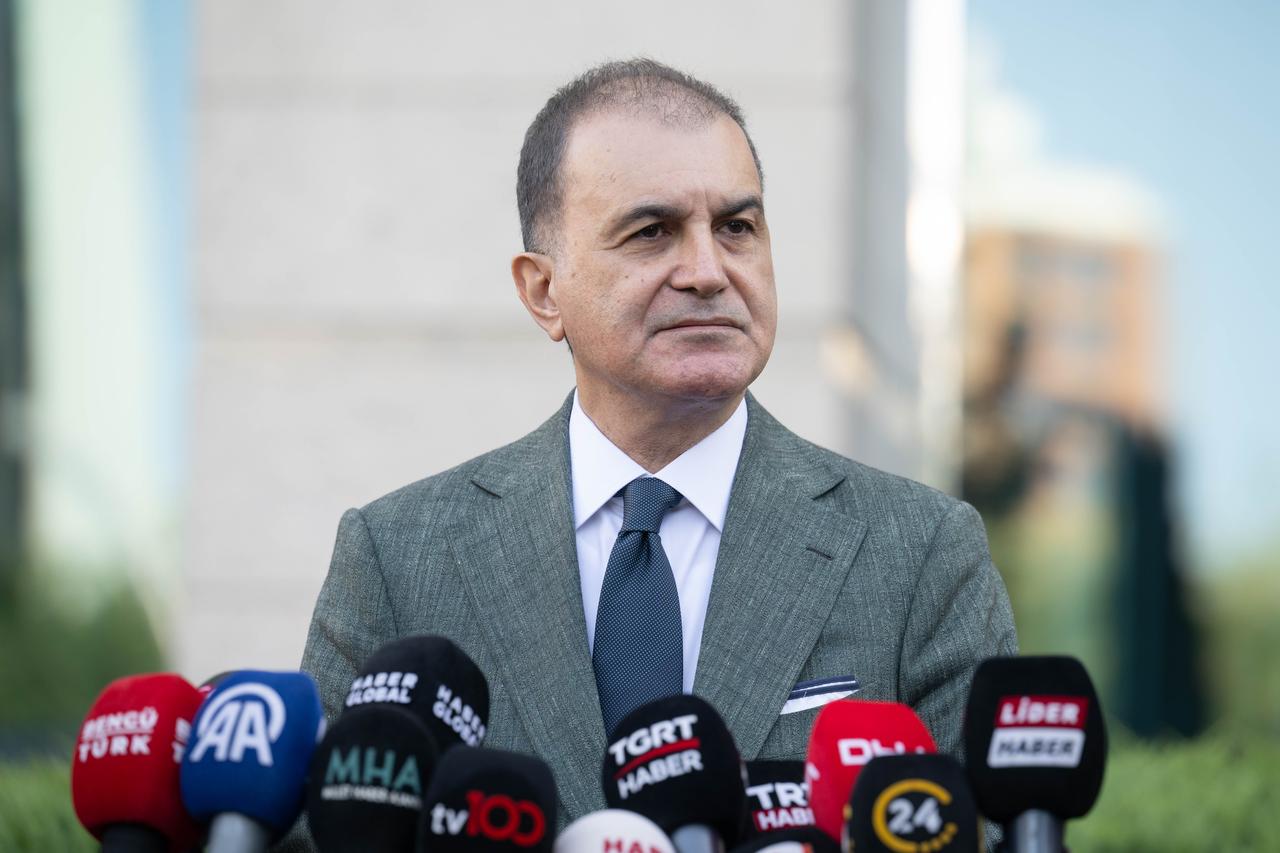
Türkiye's ruling Justice and Development Party (AK Party) delivered its strongest condemnation yet of Israel's strikes on Iranian nuclear facilities, calling the attacks "completely illegitimate" and warning of catastrophic nuclear dangers threatening the entire Middle East.
"There is no legitimacy whatsoever for Israel's attack on Iran using nuclear facilities as an excuse. This is a completely illegitimate attack. We condemn every kind of attack on Iran," AK Party Deputy Chairman and Spokesperson Omer Celik declared following a Central Executive Committee meeting chaired by President Recep Tayyip Erdogan.
Speaking at party headquarters in Ankara, Celik emphasized Türkiye's unwavering support for Iran's sovereignty: "We support Iran's security, national sovereignty, and territorial integrity to the end. A U.N. member country being attacked in a lawless and illegal manner is unacceptable."
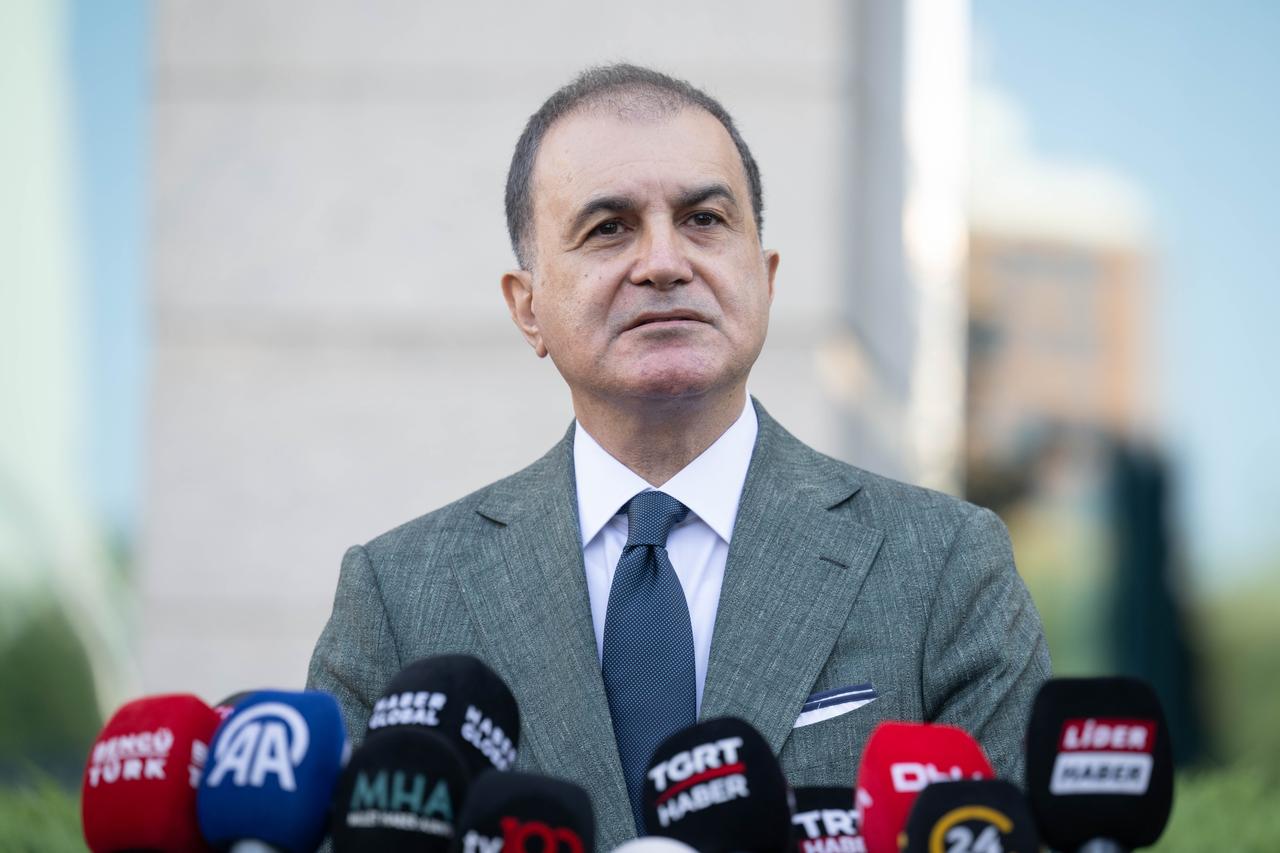
Celik outlined the comprehensive discussion of Israel's attack on Iran, Israel's "genocide" in Gaza, and the Russia-Ukraine conflict during the Central Executive Committee meeting, noting that Foreign Minister Hakan Fidan's presentation covered these developments.
Highlighting the destruction of civilian infrastructure and bombing of civilians in Israel's unlawful, savage attack on Iran, Celik warned of nuclear dangers. "We are all facing an agenda where nuclear danger—which we all see as a grave concern—could escalate into something more devastating. Bombs are being dropped on nuclear facilities. The Atomic Energy Agency said 'There is a leak in Natanz'. This danger could produce results that will plunge the entire region into greater trouble at any moment," he said.
Celik emphasized the double standard in international responses: "The fact that warnings about nuclear power plants in the region during the Russia-Ukraine conflict are not being raised regarding Iran's nuclear facilities, despite the situation being much larger and more devastating, is extremely instructive."
Israel’s attack on Iran represents a clear violation of the U.N. Charter and international law, exposing the failure of international institutions and the erosion of their legitimacy, Celik said.
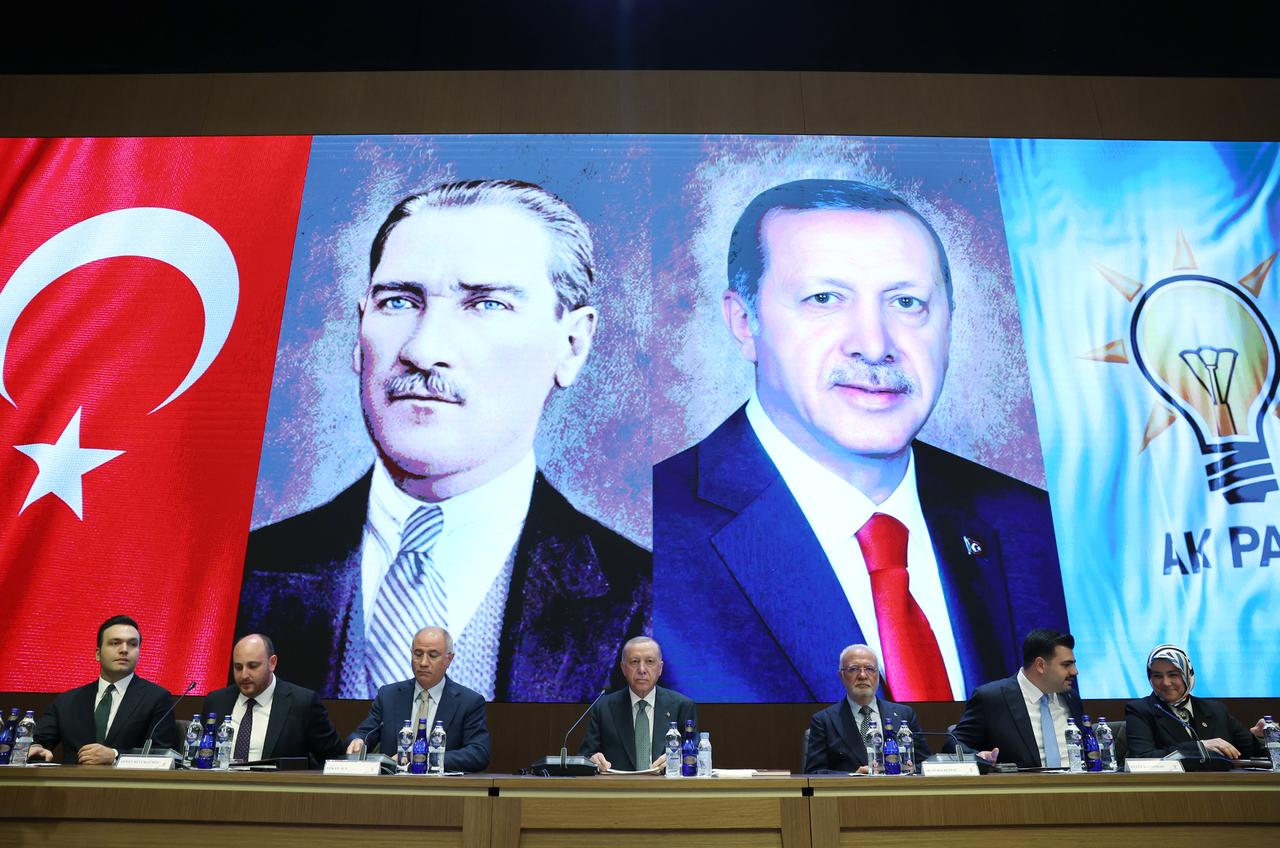
Recalling President Erdogan's long-standing position on nuclear weapons in the region, Celik stated: "Years ago, our president clearly laid out the AK Party's principle on nuclear weapons."
"Our president said 'We do not want anyone in the region to have nuclear weapons,'" Celik noted, continuing: "Those who see the nuclear studies of countries in the region as a threat wanted us to find Israel's possession of nuclear weapons quite natural. Our President objected to this at every stage of his political life."
"Our President was meeting with leaders on the margins of the U.N. General Assembly in New York before these conflicts and genocide began. Our President had accepted Netanyahu's request for a meeting at that time. There he told him 'You criticize others' nuclear weapon studies, but you yourself have nuclear weapons,'" he added.
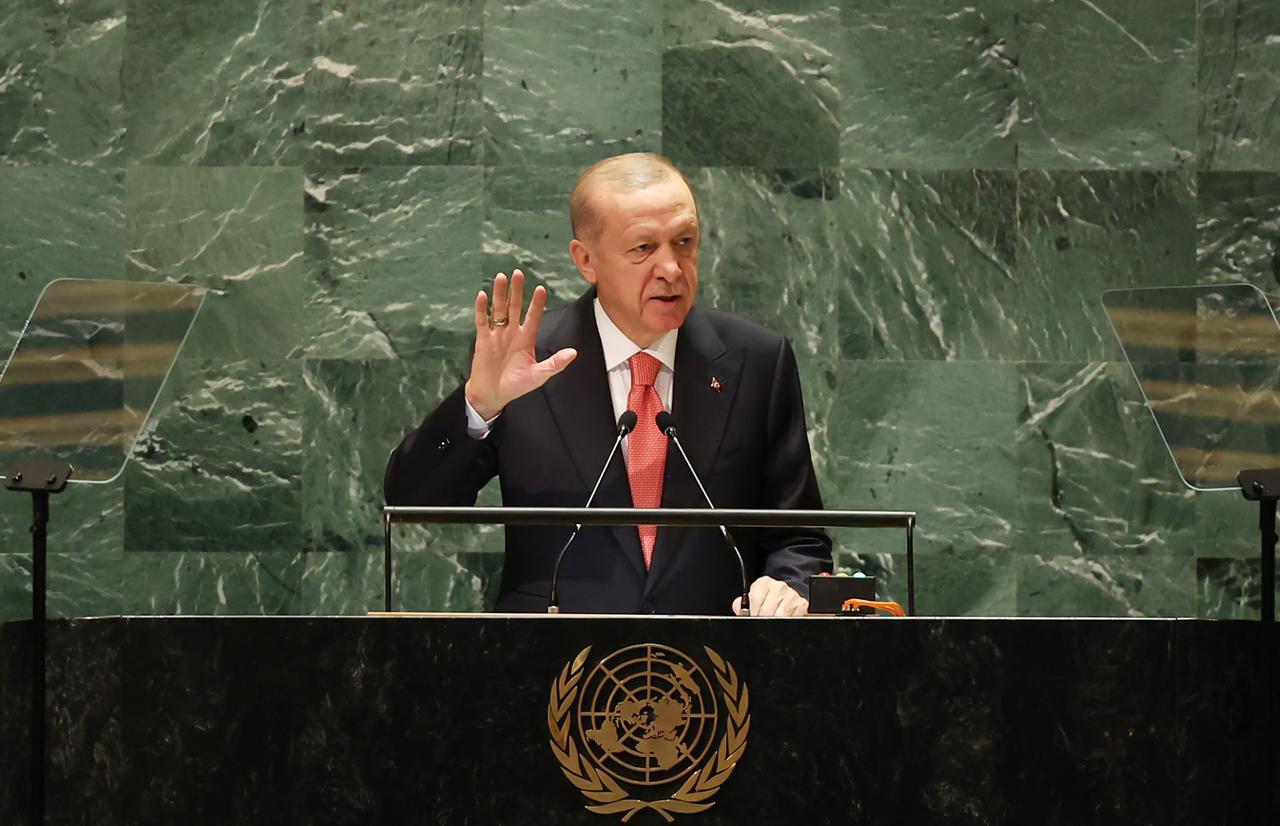
"The nuclear threat is a bigger danger than the closure of the Strait of Hormuz, yet it's not being discussed while the closure of the Strait of Hormuz is being talked about," Celik observed, noting that while media focuses on potential Strait of Hormuz closures affecting oil prices and supply chains, the nuclear threat receives inadequate attention.
"Those who make very mild statements about this aggression, while the aggressor side is Israel, say that Iran should not respond or that Iran's response could have very devastating consequences. However, it was Israel that started this. Careful overlooking of these two points actually means nothing other than protecting and encouraging the aggressor side," Celik stated.
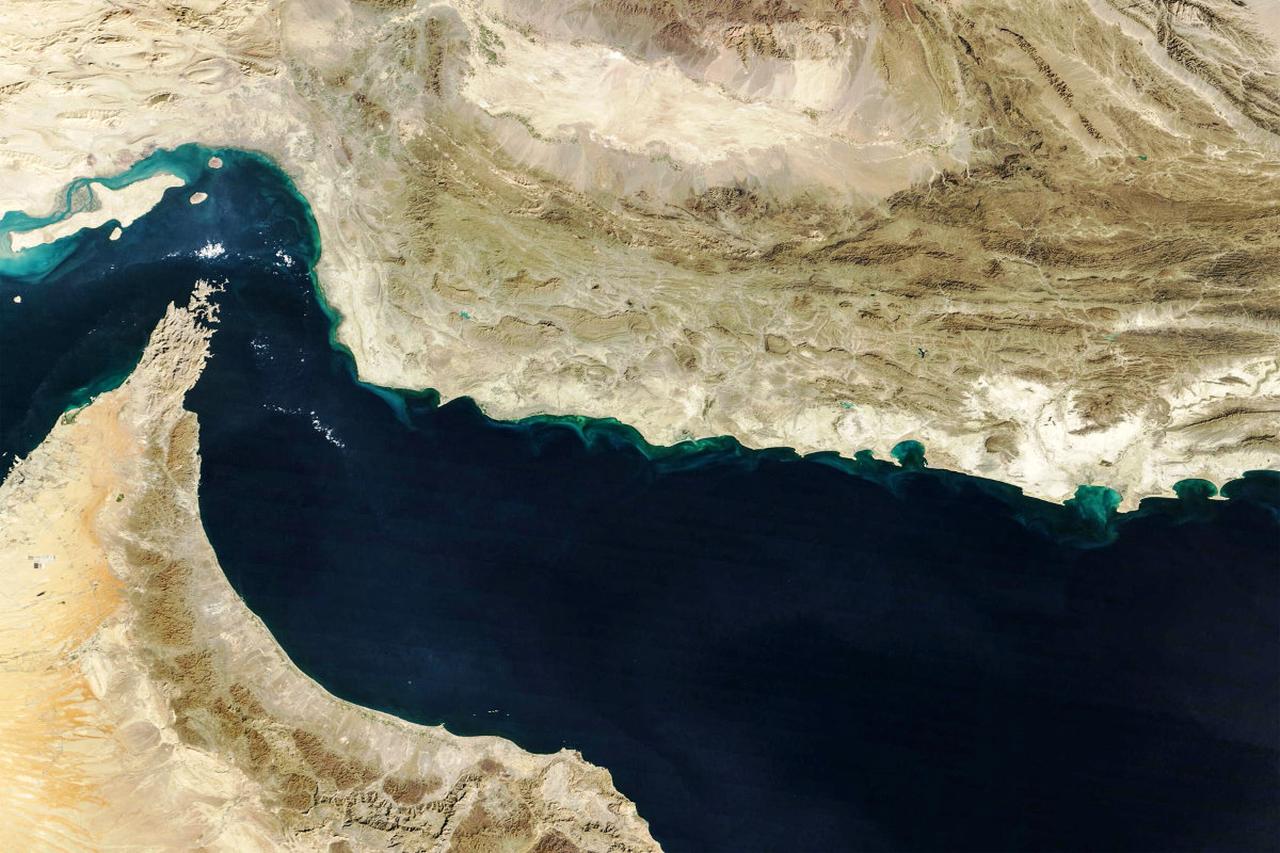
Celik confirmed that following the U.S. and Israeli attack on Iran: "The issue was presented to our President, and by the instruction of our President, the armed forces and other units took all kinds of measures for the country's security, and entered a state of alert."
"First, it was nuclear facilities and the prevention of nuclear weapons. Then civilian infrastructure was hit. Now, regime change is being talked about. In particular, an approach that involves targeting Iran’s religious leader is completely unacceptable,” Celik warned.
He emphasized that Netanyahu's government has committed many crimes to date, but attempting to escalate matters by targeting Iran’s security, national sovereignty, and territorial integrity—pushing for regime change or adopting any stance against the country’s religious leader—marks a new level of "savagery." Such actions bring the most feared scenarios to the forefront, creating an extremely dangerous situation for all, where no one can feel secure.
"Some people have no basis for constantly talking about work being done to ensure Israel's security. Today, it is Netanyahu's government's aggressiveness and aggression that puts Israeli citizens, civilians in Israel, in the most insecure environment. So if there is a threat to Israel today, there is only one threat," he noted.
"The biggest threat is Netanyahu's government itself. Israeli citizens are being forced to leave Israel as a result of the Netanyahu government's aggression," Celik declared.
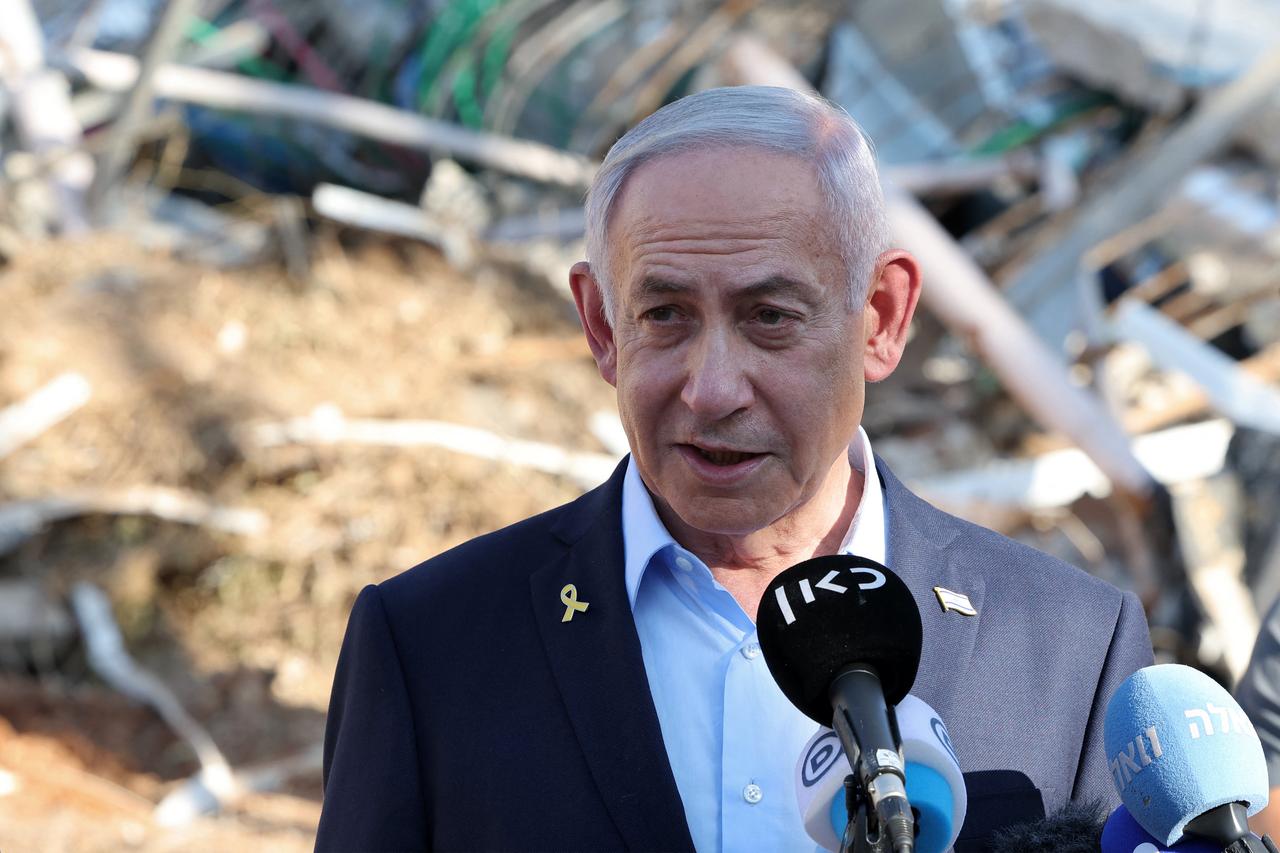
Celik warned about powerful countries attempting regime changes, saying: "Countries in the world that have power, aircraft carriers, bomber planes, missiles attempting to change other countries' regimes will turn the world into hell."
He referred to earlier remarks by the U.S. Ambassador to Türkiye, who stated that "Sykes-Picot was wrong" and that the United States would not pursue regime change in any form. He noted that such statements were seen as "extremely positive," as the consequences of regime change efforts—or attempts to reshape other countries based on external agendas—had already been clearly demonstrated in Afghanistan and Iraq, resulting in immense human and security costs for the local populations, the international system, and Western countries alike.
"Iran rightfully says, 'We were already at the negotiation table. We were going to move to a new phase of talks in Oman. But we were attacked. So while this attack continues, we can't return to the negotiation table in any way.' Iran is right. Because the attacking side is the Israeli side. They were going to meet with America in Oman again on Sunday."
"Iran was at the negotiation table. So Iran's approach here is that we can return to the negotiation table after the attacks stop," he added.
“What must be achieved today is the immediate halt of Israel’s aggression. The moment it stops—even a minute later—the negotiation agenda will quickly regain momentum. There is no issue with Iran not approaching negotiations," Celik noted.
"The problem here is that Israel is targeting both Iran and the negotiations in Oman with its aggression. It has targeted international law. It has targeted the U.N. Charter. Our President expressed this to all his interlocutors, he is ready to do his part," Celik concluded.